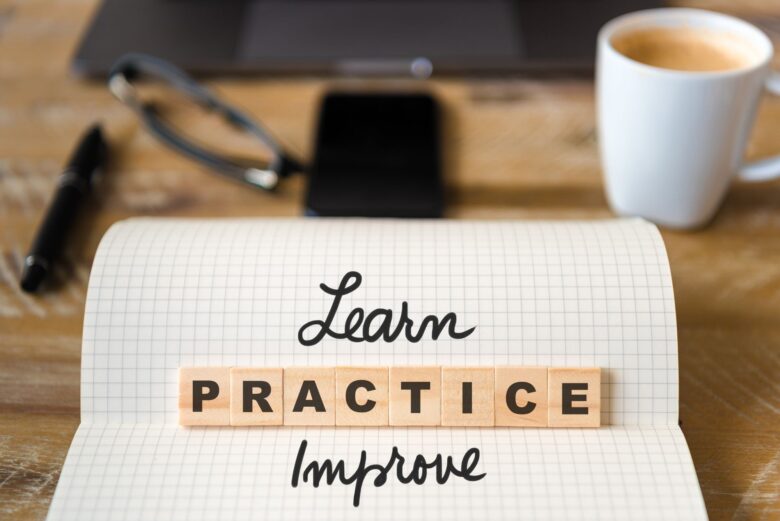The Dental Admission Test is an essential step for those who want to start a career in dental medicine. It’s the first thing you need to do before applying to dental school. As you accomplish high scores on the DATs, you improve your chances of being accepted into the preferred dental school and pursuing the career you’ve always dreamed of.
But how to dominate DAT? What does it take to pass it with a great mark and achieve maximum success? Do you need to study regularly, or can you find the questions online and simply follow the patterns? How important is this test for future dental medicine practitioners? What does it include?
Don’t worry, as we have so many answers and tips to share with you.
So, are you ready to finally discover what’s in the exam and create a study plan? Let’s do that!
Contents
Understand the Format

Source: univariety.com
The DAT exam has a structure and format, and you must get to know it well before taking the exam. What does it mean? There are four sections of tests in natural sciences, perceptual ability test, reading comprehension, and quantitative reasoning. As you suppose, every section is important for your future in dental school.
So, let’s discover what you need to do:
– Natural sciences
This part evaluates your current knowledge in chemistry, organic chemistry, and biology. You need to showcase your theoretical knowledge but also your problem-solving skills and ability to connect scientific concepts to dental scenarios. Usually, you’ll get questions on biochemistry, biology, genetics, chemical reactions, etc.
– Perceptual ability test
The PAT measures your spatial perception, visual acuity, and ability to manipulate objects mentally. This way, you show your ability to understand dental structures and interpret the symptoms before taking any further action.
– Reading comprehension test
This test evaluates your reading skills and ability to understand the context. You’ll probably have to read different types of written texts, analyze them and answer related questions. It is crucial to understand the main ideas, identify supporting details, and draw logical conclusions from the given information.
– Quantitive reasoning
At this point, they’ll test your problem-solving skills, which includes intermediate math, such as algebra, statistics, arithmetic, and probability. The questions may involve calculations, data interpretation, and reasoning with mathematical concepts.
Once you’re familiar with this concept, you’ll easily get prepared for the DAT and pass it with really high score.
Create a Study Plan

Source: mintbook.com
Once you’re familiar with the concept of DAT, you can now develop a study plan. There is no right formula on how to organize your time. You only need to focus on managing the time better and adjusting it according to your learning style. We suggest you dedicate specific time slots for each section and allocate additional time for review and practice tests.
As a result, you get a structured plan that keeps you focused and organized – which is essential if you want to go to dental school. This will help you study more effectively and accomplish your goals easier.
Get Access to the Resources
There are prep books, practice tests, and online resources available. We suggest you choose reputable sources that cover the exam content. That way, you get essential knowledge, and you can practice the questions. Consider enrolling in DAT prep courses or joining study groups to benefit from additional guidance and peer support.
As you review the DAT content areas, you can find enough textbooks, online lectures, and even watch educational videos to better grasp the concept and become even better at what you do. Take comprehensive notes, create flashcards, and develop mnemonic devices to aid in memorization. Of course, take enough time to get back to the most challenging topics to ensure you understand them before moving to some of the next chapters.
Never Stop Practicing

Source: ardentlearning.com
Depending on how much time you have until the exam, you need to resolve the questions over and over again and see if you’re perfectly familiar with every aspect of it. You can even ask your friend or some family member to help you so you can also get comfortable answering the DAT questions.
Utilize DAT-specific practice materials to acclimate yourself to the types of questions you will encounter. Pay attention to your performance, identify weaknesses, and dedicate extra time to improving in those areas. Develop effective strategies for managing time and answering questions accurately. All these things are essential when it comes to practicing and getting better for dental school challenges.
Identify the Weak Spots and Work on Them
If your perceptual ability is weaker than needed, enhance the skills that will improve your spatial visualization and pattern recognition. There are so many resources available you won’t have a problem getting better at it. You can even use dental tools to improve your perception of shapes and get better at angle visualization.
Surely, you need to practice managing your emotions because the test requires a mental ability to handle challenges. And while doing this, never forget to:
Take Care of Yourself

Source: relevant.software
You know, you can’t pour anything from an empty glass. If you’re tired, stressed, and burnt out, you’ll surely manage to get high scores on DAT. On the other hand, you can get enough sleep, exercise regularly, and eat a balanced diet to ensure your physical health and mental capacity are in their best possible shape.
Don’t stop practicing, but also take breaks and use your spare time wisely to prevent burnout.
Final Thoughts
It seems like we covered almost every aspect of the DAT exam, and now you’re ready to embrace the challenge and finally accomplish your dream of becoming a dentist or dental practitioner. Surely it’s a lot to take, but it’s completely worth the time and effort investment.
So, the deal is simple, get familiar with the exam format, find and collect the needed learning resources, practice, and surely take care of your physical and mental health. That way, you’re completely prepared to start dental medicine school and unleash the professional potential that lies in you – even though you may not be aware of it right now.
